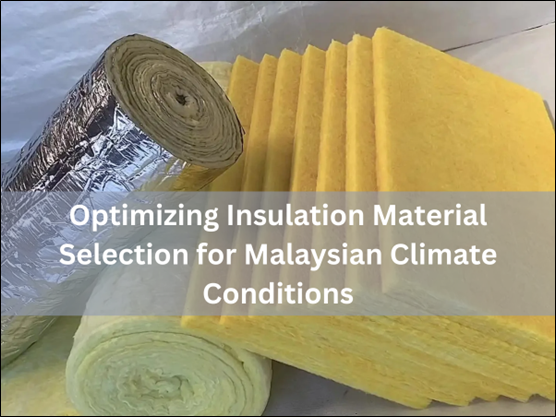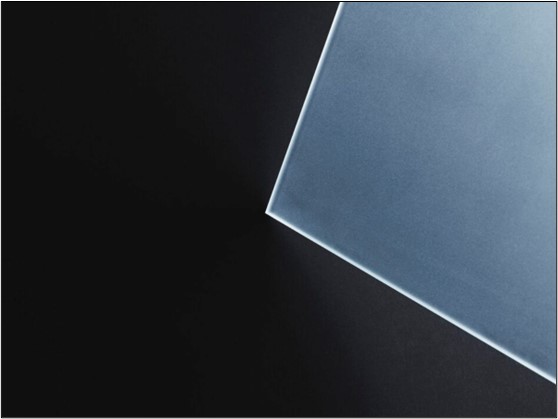
Optimizing Insulation Material Selection for Malaysian Climate Conditions
Malaysia, with its tropical rainforest climate, experiences high humidity and temperatures all year round. This unique climate presents a significant challenge in building construction, particularly in selecting suitable insulation materials. Insulation is crucial in ensuring energy efficiency, comfort, and sustainability in buildings. This article explores the critical considerations in optimizing insulation material selection for Malaysian climate conditions.
Understanding the Malaysian Climate
Before delving into insulation materials, it is essential to understand the Malaysian climate. Characterized by a consistent temperature range between 23°C and 32°C and high humidity levels, Malaysian weather demands insulation solutions that not only reduce heat gain but also manage moisture effectively. The frequent rain and high moisture content in the air can affect the performance and durability of insulation materials.
Criteria for Selecting Insulation Materials
- Thermal Performance: The primary function of insulation is to resist heat flow. In Malaysia, the focus is on preventing heat gain from the outside. Materials with a high R-value, indicating excellent resistance to heat flow, are preferable. However, it's not just about the highest R-value; the material must be suitable for the tropical climate.
- Moisture Resistance: Given the high humidity, insulation materials must be resistant to moisture absorption. Materials that absorb moisture can lose thermal efficiency and may lead to structural issues like mold growth and wood rot.
- Durability and Longevity: The selected insulation should withstand the local climate conditions without degrading. Durable materials ensure long-term performance and reduce the need for frequent replacements.
- Eco-Friendliness: With growing environmental concerns, choosing eco-friendly insulation materials can contribute to sustainable construction practices. Materials that are recyclable or made from renewable resources are preferable.
Recommended Insulation Materials for Malaysia
- Fiberglass: Widely used due to its effectiveness in resisting heat flow and affordability. However, it requires careful installation and protection from moisture.
- Mineral Wool: Offers good thermal performance and is more resistant to moisture compared to fiberglass. It's also fire-resistant, adding to building safety.
- Polyurethane Foam: Excellent for both thermal insulation and moisture resistance. Spray foam can seal gaps and cracks, enhancing overall insulation effectiveness.
- Reflective Insulation: This type of insulation reflects radiant heat, making it
suitable for tropical climates. It's often used in conjunction with other
insulation materials.
Challenges and Solutions:
Cost Constraints: High-performance insulation materials can be costly, posing a
potential deterrent. However, considering long-term energy savings and reduced
environmental impact, the initial investment can be justified.
Installation Expertise: Lack of awareness and expertise in proper insulation
installation is a challenge. Investing in skilled labor and comprehensive
training programs can address this issue, ensuring optimal performance.
Challenges and Solutions
Despite the availability of suitable materials, several
challenges persist in optimizing insulation for Malaysian buildings. One major
challenge is the cost. High-performance insulation materials can be expensive,
deterring their widespread use. However, considering the long-term energy
savings and reduced environmental impact, the initial investment can be
justified.
Another challenge is the lack of awareness and expertise in proper insulation installation. Incorrect installation can significantly reduce the effectiveness of insulation. Investing in skilled labor and proper training can address this issue.
Leopad: Your Trusted Insulation Contractor in Malaysia
Our expertise in this field, combined with comprehensive range
of all insulation solutions, including Rockwool, Cellular Glass, PUR/PIR,
Calcium Silicate, Perlite, Glass Wool, Ceramic Fiber, Flexible Elastomeric
Foam, Aerogel Blanket, Removable Insulation Blanket, positions us as a one-stop
shop for cutting-edge insulation solutions.
Conclusion
Selecting the suitable insulation material for Malaysian climate
conditions is a balancing act between thermal performance, moisture resistance,
durability, and environmental sustainability. At the same time, materials like
fiberglass, mineral wool, polyurethane foam, and reflective insulation offer
viable solutions, but challenges such as cost and installation expertise must
be addressed.
Building professionals and homeowners in Malaysia need to consider these factors carefully to ensure that their choice of insulation material aligns with the unique climatic challenges of the region. Leopad offers the best quality insulation materials for more sustainable building practices, achieving energy efficiency and comfort in buildings. By choosing the best supplier so, building professionals and homeowners can contribute to more energy-efficient, comfortable, and sustainable living environments.

Innovative Insulation Technology: Aerogel Insulation in Malaysia
The construction industry in Malaysia is witnessing a revolutionary change with the introduction of Aerogel insulation.

Optimizing Insulation Material Selection for Malaysian Climate Conditions
Malaysia, with its tropical rainforest climate, experiences high humidity and temperatures all year round. This unique climate presents a significant challenge in building construction, particularly i